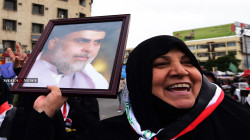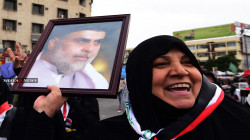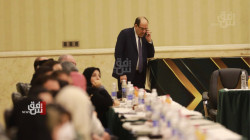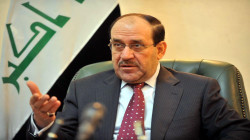Sadrist-Maliki conflict renews over legislation to criminalize insulting religious references and symbols
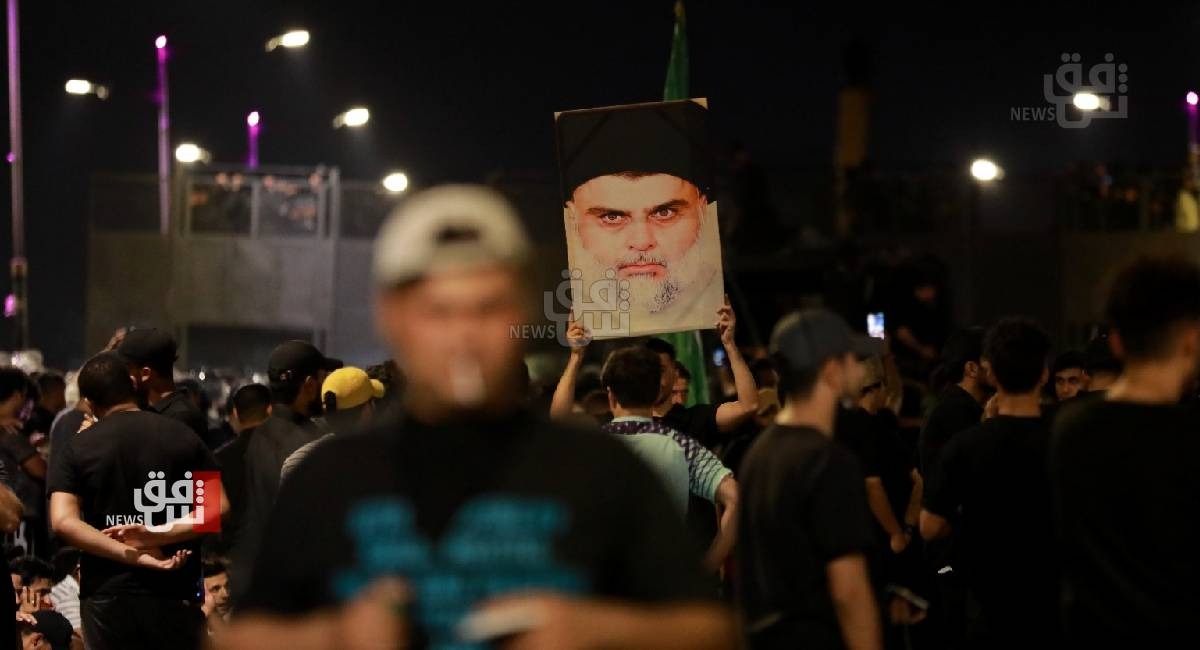
Shafaq News / Calls have arisen within political circles to introduce legislation aimed at "criminalizing insulting religious references and symbols." These calls were prompted by renewed tensions between the Sadrist Movement and the Islamic Dawa Party, with direct accusations against the Coordination Framework of attempting to discredit the late religious authority, Muhammad Muhammad Sadiq al-Sadr, who was the father of Muqtada al-Sadr.
Al-Sadr, without explicitly naming any parties, accused certain groups of inciting Shiite-Shiite strife through the use of violence. Consequently, he urged the parliament to enact a law that would penalize the act of insulting religious symbols, in an effort to discourage any further discord.
On Monday, July 17, 2023, al-Sadr conveyed his optimism through a tweet about the possibility of defusing the ongoing tensions as some parliamentary political groups convened to approve the proposed law. He also emphasized the importance of ensuring precise wording of the bill's articles to avoid any unintended repercussions.
The situation escalated when members of the Sadrist Movement took the decision to close down Dawa Party headquarters in the country's central and southern governorates on Sunday, July 16. This action was a protest against what they perceived as an insult to the authority of Muhammad Muhammad Sadiq al-Sadr by the Dawa Party.
Adding to the complexity of the situation, Hassan al-Athari, the former head of the Sadrist bloc, drew attention to disparaging posts on social media that targeted the late religious authority, Muhammad al-Sadr. Moreover, these posts accused him of having connections with the Baath regime, with the Dawa Party allegedly involved in orchestrating this campaign.
In response to the actions taken by the Sadrist Movement against its headquarters, the Dawa Party, led by Nouri al-Maliki, issued a statement warning against the dangers of "blind sedition" targeting people within the same community.
Addressing the issue, the Supreme Judicial Council directed authorities to tighten measures against those involved in crimes related to insulting religious symbols and beliefs. Such acts were considered a clear violation of the provisions outlined in Article 372 of the current Penal Code. The Council also urged the House of Representatives to expedite the legislation of the Cybercrime Law, as a means to control the use of social media platforms for inciting sedition.
In response to these developments, several political blocs submitted parliamentary signatures to the Presidency of Parliament. The purpose behind this effort is to propose the bill criminalizing abuse and refer it to the relevant parliamentary committees for approval.
In this regard, the head of the parliamentary Qadimon bloc, Kamel al-Uqaili, stated that "all members of the House of Representatives support the legislation of the law." He indicated to Shafaq News Agency that "it includes all references and religious symbols, living and dead, without exception." He expects the law to be passed in the coming months.
However, Wa’el al-Rikabi, a member of the State of Law Coalition, believes that "the process of legislating this law may be lengthy because it requires many details to be clarified. These details include determining who is meant by the abuse, whether the reference is alive or dead, Iraqi or from another country, and other aspects that need thorough discussion."
He pointed out to Shafaq News Agency, "The new law aims to prevent the abuse of symbols and references in the media and on social networks, as such abuse reflects negatively on their political and societal standing among their supporters and consequently affects their influence on the political process."
According to Article 372 of Iraqi law, anyone who publicly assaults or denigrates a religious sect's beliefs or rites, deliberately disrupts the observance of sectarian rites, or destroys, damages, or desecrates a building intended for the holding of religious rites or a symbol of religious sanctity, shall be punished by imprisonment for a term not exceeding three years or a fine not exceeding 300 dinars.
"Article 372, paragraph five, has been greatly expanded to impose punishment for abuse against individuals respected by a particular sect. This could include not only clerics but also scientists or researchers," said legal expert Ali al-Tamimi.
"The concept of irony in the text is a generic term that might encompass sarcasm, bashing, jokes, or even drawings. Therefore, the Court of Investigation and the Court of First Instance are the ones who define the specifics of each case."
Observers express concerns about enacting the "criminalization of abuse" law, especially with Article 372 already in force in Iraqi law. There are fears that the new law could be exploited or distorted during implementation, potentially becoming a weapon to suppress voices. It may also extend its scope to include opinion writers, media professionals, and even citizens expressing their opinions on social media. The situation could become more precarious if the Cybercrime Law is also approved.
Another concern raised about the law is that it might be expanded to include not only religious references but also clerics and other individuals. Furthermore, given the cross-border nature of religious sanctities, there are worries that the law might also target religious figures outside Iraq, such as those in Iran, Saudi Arabia, Egypt, or other countries.
Consequently, observers argue that, as al-Sadr put it, this law is "a double-edged sword" because, if it is not carefully drafted by political forces, it may both prevent sedition and open doors that have not been taken into account.
"Although the Iraqi Penal Code is explicit and clear in punishing anyone who offends religions or their symbols, including those who promote and carry out these unjustified abuses, the failure to activate and implement the law has made such offenses common in both political and social circles," said political analyst Abdul Qader al-Nayel.
Al-Nayel told Shafaq News Agency that "instead of enacting more laws that already exist, it is essential to strengthen and fairly activate the judiciary and the existing laws against any insult to the beliefs of a sect or religion. Specifically, those who fabricate abuse for political purposes should face consequences, such as adding a paragraph in Law No. 111 of 1969, which prohibits abusers from participating in elections or assuming any position. This, in itself, should be sufficient to deter potential abusers."
